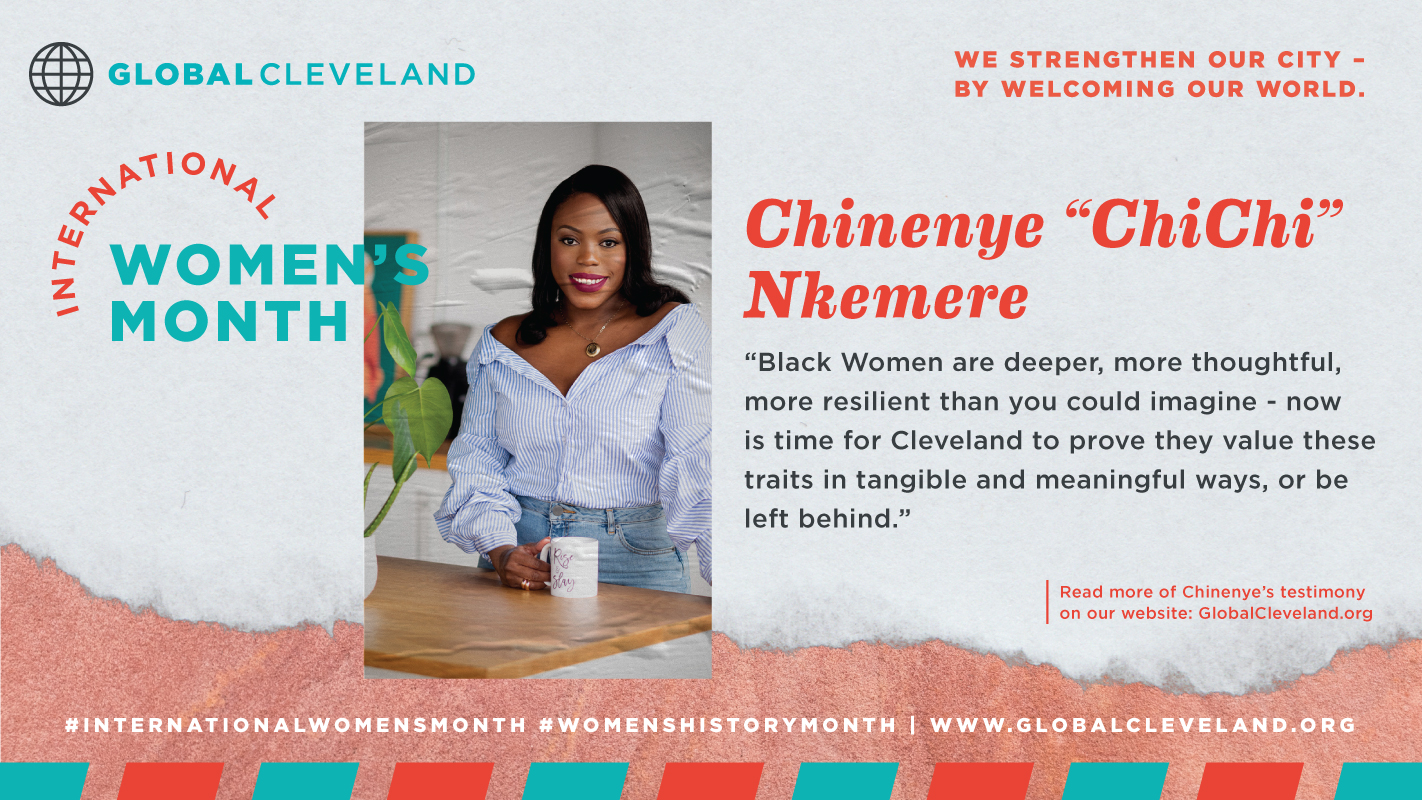
What country were you born in, and how long have you lived in Cleveland?
My name is Chinenyenwa Adanma Nkemere (Igbo Kwenu!) and I was born in Cleveland, Ohio. For a short part of my childhood, my mother and I lived in Nigeria but eventually came back to the States.
I describe myself as an Igbo person raised by Cleveland; I am equally influenced by Black American Midwest culture as well as being raised in a Nigerian household.
What has been the largest challenge in your journey toward personal success?
The biggest challenge is pervasive imposter syndrome; when you consistently doubt and second-guess your abilities, even to the extent of feeling like a fraud in professional and personal settings.
As a Black and Nigerian woman, society mandates we “work twice as hard to get half as far” within the realm of professional pursuits, relationships, financial stability, and healthcare access. We are told that much of our success is dependent on the good graces and “sponsorship” of well-meaning white allies. It gives you a sense of inferiority about your skills – even when confronted with the reality of Black Women’s collective and individual excellence.
Breaking free of that cycle, and consistently working to amplifying the voices of other Black Women, at all intersections, truly helps to keep imposter syndrome at bay.
What is one piece of advice you have for women in your community and all over the world?
If you find community in Black Women, you will find community and peace within yourself. In Beloved, Toni Morrison writes: “The pieces I am, she gather them and gave them back to me in all the right order.”
That’s how I feel about Black Women; if you find a group(s) where you can be your most authentic self; vulnerable to strong, nerdy to vain, bright, and funny – you have found a good thing. You have found a healing thing. You have found your home.
How can the greater Cleveland community encourage, support, and amplify the success of international women?
There is an Igbo proverb, “He who lives in the attic, knows where the roof leaks.” Black women, the most marginalized in this city, intimately know where the deep-seated structural inequities are and are best equipped to fix them.
As an economic sustainability issue for our region, Northeast Ohio MUST empower Black Women with unencumbered financial resources and cross-curricular positions of influence. Non-profits, business, academic institutions, and healthcare facilities MUST leverage their platforms and silently learn from the lived experiences of Black Women year-round; not just during Black History Month or Women’s History Month.
Black Women are deeper, more thoughtful, more resilient than you could imagine – now is time for Cleveland to prove they value these traits in tangible and meaningful ways, or be left behind.

